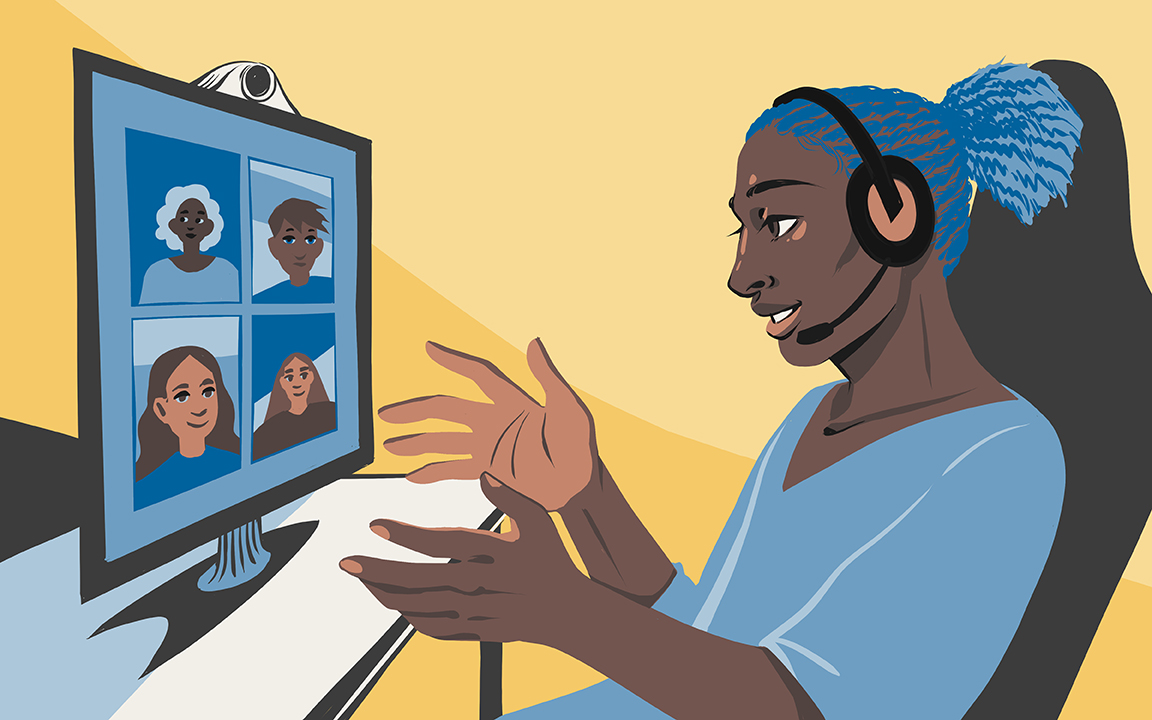Changing your speech
Some people choose to alter their voice. This type of social transition allows a person to present a more masculine, feminine or androgynous gender expression.

Your voice is unique to you, and wanting to change it is entirely personal. There is no “right” or “wrong” way to sound like your gender.
Voice therapy
Trans, Two-Spirit A term used within some Indigenous communities to reflect complex Indigenous understandings of gender and sexuality and the long history of sexual and gender diversity in Indigenous cultures. Two-Spirit encompasses sexual, gender, cultural and spiritual identity. It may refer to cross-gender, multi-gender or non-binary gender roles, non-heterosexual identities, and a range of cultural identities, roles and practices embodied by Two-Spirit peoples. Some people also use "2-Spirit" or "2S." (Source: Battered Women’s Support Services) and non-binary Umbrella term referring to people whose gender does not fall within the binary gender system of woman/girl or man/boy. Some individuals identify as non-binary while others may use terms such as gender non-conforming, genderqueer, or agender. Non-binary people may or may not conform to societal expectations for their gender expression and gender role, and they may or may not seek gender-affirming medical or surgical care. people may seek voice therapy if they feel there’s a mismatch between their voice qualities and how they — or others — perceive their gender.
Through voice therapy, speech-language pathologists, respiratory therapists and voice coaches provide training to help you to use your voice in alignment with your gender. These practitioners help you learn to control your pitch to achieve higher or lower voices.
Voice therapy is available through private-pay speech-language pathologists (SLPs) who specialize in gender-affirming voice training. If you have extended benefits, your can ask your insurance provider if gender-affirming voice therapy is covered. For more information about SLPs in your area contact the Trans Care health navigation team.
Changing Keys — voice feminization training
Trans Care BC offers a free program for B.C. residents called Changing Keys. It is an intensive speech and voice training program offered one-to-one and, in some cases, a group format. It consists of a private speech and voice evaluation and therapy program. In the program, participants work on speech and voice parameters, such as:
- Speaking pitch
- Vocal inflections
- Voice quality
- Vocal resonance
- Speech sound articulation
Participants discuss but do not work directly with other aspects of communication, such as:
- Gestures
- Facial expressions
- Word choice
- Laughing
- Listening behaviors
- Turn-taking in conversation
Changing Keys is a set curriculum, and may not be appropriate for individuals who are seeking support for a specific voice concern. Sessions take place over approximately 7 weeks, depending on the format, and cover topics related to voice feminization.
To get the most out of the program, individuals interested in Changing Keys should be prepared to attend all sessions.
To apply to be part of Changing Keys, fill out the Changing Keys application form and email it to transcareteam@phsa.ca. Please note: The current wait-time for Changing Keys is 1.5+ years. Once you apply, you will be placed on our waitlist.
Surgery
There are surgical options to change your voice, however these are not covered by MSP The Medical Services Plan (MSP) is a B.C. government health plan that pays for physician services and referred services that are considered medically necessary, such as specialists (surgeon, psychiatrist, etc.), diagnostic x-rays, or laboratory services, for all BC residents. Some residents qualify for premium assistance for physiotherapy, chiropractic, naturopathy, massage therapy and acupuncture. .
Testosterone and the singing voice
Testosterone lowers the voice by thickening and lengthening the vocal folds and cords. This effect makes some people concerned about how that will affect their singing voice.
Little research has been done on this topic; however, some people report good results with a slow introduction of testosterone, which mimics the rate of testosterone increase during puberty of
cisgender
Refers to people who are non-trans, i.e. whose gender matches their assigned sex at birth.
males.
If you are concerned about the effects of testosterone on your voice, talk with your
primary care provider
A person’s main health care provider in non-emergency situations such as check-ups and referrals. Family doctors, general practitioners (GPs) and nurse practitioners (NPs) are all primary care providers.
.
Resources
- Testosterone and the Trans Male Singing Voice — a Joshua Riverdale article on Trans Guys website.
- Voice and Communication Change for Gender Nonconforming Individuals: Giving Voice to the Person Inside — an academic article that provides foundations for clinical practice by reviewing the evidence and offering suggestions for developing goals and protocols. Shelagh Davies, Viktória G. Papp & Christella Antoni (2015). International Journal of Transgenderism, 16:3, 117-159.
- The Voice Book for Trans and Non-Binary People — a book by Matthew Mills & Gillie Stoneham.
Contact our team of experienced health navigators for information about gender-affirming care in B.C.

